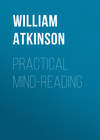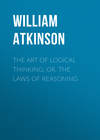Kitabı oku: «Memory: How to Develop, Train, and Use It», sayfa 4
CHAPTER VII
ASSOCIATION
In the preceding chapters we have seen that in order that a thing may be remembered, it must be impressed clearly upon the mind in the first place; and that in order to obtain a clear impression there must be a manifestation of attention. So much for the recording of the impressions. But when we come to recalling, recollecting or remembering the impressions we are brought face to face with another important law of memory – the law of Association. Association plays a part analogous to the indexing and cross-indexing of a book; a library; or another system in which the aim is to readily find something that has been filed away, or contained in some way in a collection of similar things. As Kay says: "In order that what is in the memory may be recalled or brought again before consciousness, it is necessary that it be regarded in connection, or in association with one or more other things or ideas, and as a rule the greater the number of other things with which it is associated the greater the likelihood of its recall. The two processes are involved in every act of memory. We must first impress, and then we must associate. Without a clear impression being formed, that which is recalled will be indistinct and inaccurate; and unless it is associated with something else in the mind, it cannot be recalled. If we may suppose an idea existing in the mind by itself, unconnected with any other idea, its recall would be impossible."
All the best authorities recognize and teach the importance of this law of association, in connection with the memory. Abercrombie says: "Next to the effect of attention is the remarkable influence produced upon memory by association." Carpenter says: "The recording power of memory mainly depends upon the degree of attention we give to the idea to be remembered. The reproducing power again altogether depends upon the nature of the associations by which the new idea has been linked on to other ideas which have been previously recorded." Ribot says: "The most fundamental law which regulates psychological phenomena is the law of association. In its comprehensive character it is comparable to the law of attraction in the physical world." Mill says: "That which the law of gravitation is to astronomy; that which the elementary properties of the tissues are to physiology; the law of association of ideas is to psychology." Stewart says: "The connection between memory and the association of ideas is so striking that it has been supposed by some that the whole of the phenomena might be resolved into this principle. The association of ideas connects our various thoughts with each other, so as to present them to the mind in a certain order; but it presupposes the existence of those thoughts in the mind, – in other words it presupposes a faculty of retaining the knowledge which we acquire. On the other hand, it is evident that without the associating principle, the power of retaining our thoughts, and of recognizing them when they occur to us, would have been of little use; for the most important articles of our knowledge might have remained latent in the mind, even when those occasions presented themselves to which they were immediately applicable."
Association of ideas depends upon two principles known, respectively, as (1) the law of contiguity; and (2) the law of similarity. Association by contiguity is that form of association by which an idea is linked, connected, or associated with the sensation, thought, or idea immediately preceding it, and that which directly follows it. Each idea, or thought, is a link in a great chain of thought being connected with the preceding link and the succeeding link. Association by similarity is that form of association by which an idea, thought, or sensation is linked, connected, or associated with ideas, thoughts, or sensations of a similar kind, which have occurred previously or subsequently. The first form of association is the relation of sequence – the second the relation of kind.
Association by contiguity is the great law of thought, as well as of memory. As Kay says: "The great law of mental association is that of contiguity, by means of which sensations and ideas that have been in the mind together or in close succession, tend to unite together, or cohere in such a way that the one can afterward recall the other. The connection that naturally subsists between a sensation or idea in the mind, and that which immediately preceded or followed it, is of the strongest and most intimate nature. The two, strictly speaking, are but one, forming one complete thought." As Taine says: "To speak correctly, there is no isolated or separate sensation. A sensation is a state which begins as a continuation of preceding ones, and ends by losing itself in those following it; it is by an arbitrary severing, and for the convenience of language, that we set it apart as we do; its beginning is the end of another, and its ending the beginning of another." As Ribot says: "When we read or hear a sentence, for example, at the commencement of the fifth word something of the fourth word still remains. Association by contiguity may be separated into two sub-classes – contiguity in time; and contiguity in space. In contiguity in time there is manifested the tendency of the memory to recall the impressions in the same order in which they were received – the first impression suggesting the second, and that the third, and so on. In this way the child learns to repeat the alphabet, and the adult the succeeding lines of a poem. As Priestly says: "In a poem, the end of each preceding word being connected with the beginning of the succeeding one, we can easily repeat them in that order, but we are not able to repeat them backwards till they have been frequently named in that order." Memory of words, or groups of words, depends upon this form of contigious association. Some persons are able to repeat long poems from beginning to end, with perfect ease, but are unable to repeat any particular sentence, or verse, without working down to it from the beginning. Contiguity in space is manifested in forms of recollection or remembrance by "position." Thus by remembering the things connected with the position of a particular thing, we are enabled to recall the thing itself. As we have seen in a preceding chapter, some forms of memory systems have been based on this law. If you will recall some house or room in which you have been, you will find that you will remember one object after another, in the order of the relative positions, or contiguity in space, or position. Beginning with the front hall, you may travel in memory from one room to another, recalling each with the objects it contains, according to the degree of attention you bestowed upon them originally. Kay says of association by contiguity: "It is on this principle of contiguity that mnemonical systems are constructed, as when what we wish to remember is associated in the mind with a certain object or locality, the ideas associated will at once come up; or when each word or idea is associated with the one immediately preceding it, so that when the one is recalled the other comes up along with it, and thus long lists of names or long passages of books can be readily learnt by heart."
From the foregoing, it will be seen that it is of great importance that we correlate our impressions with those preceding and following. The more closely knitted together our impressions are, the more closely will they cohere, and the greater will be the facility of remembering or recollecting them. We should endeavor to form our impressions of things so that they will be associated with other impressions, in time and space. Every other thing that is associated in the mind with a given thing, serves as a "loose end" of memory, which if once grasped and followed up will lead us to the thing we desire to recall to mind.
Association by similarity is the linking together of impressions of a similar kind, irrespective of time and place. Carpenter expresses it as follows: "The law of similarity expresses the general fact that any present state of consciousness tends to revive previous states which are similar to it… Rational or philosophical association is when a fact or statement on which the attention is fixed is associated with some fact previously known, to which it has a relation, or with some subject which it is calculated to illustrate." And as Kay says: "The similars may be widely apart in space or in time, but they are brought together and associated through their resemblance to each other. Thus, a circumstance of to-day may recall circumstances of a similar nature that occurred perhaps at very different times, and they will become associated together in the mind, so that afterwards the presence of one will tend to recall the others." Abercrombie says of this phase of association: "The habit of correct association – that is, connecting facts in the mind according to their true relations, and to the manner in which they tend to illustrate each other, is one of the principle means of improving the memory, particularly that kind of memory which is an essential quality of a cultivated mind – namely, that which is founded not upon incidental connections, but on true and important relations."
As Beattie says: "The more relations or likenesses that we find or can establish between objects, the more easily will the view of one lead us to recollect the rest." And as Kay says: "In order to fix a thing in the memory, we must associate it with something in the mind already, and the more closely that which we wish to remember resembles that with which it is associated, the better is it fixed in the memory, and the more readily is it recalled. If the two strongly resemble each other, or are not to be distinguished from each other, then the association is of the strongest kind… The memory is able to retain and replace a vastly greater number of ideas, if they are associated or arranged on some principle of similarity, than if they are presented merely as isolated facts. It is not by the multitude of ideas, but the want of arrangement among them, that the memory is burdened and its powers weakened." As Arnott says: "The ignorant man may be said to have charged his hundred hooks of knowledge (to use a rude simile), with single objects, while the informed man makes each hook support a long chain to which thousands of kindred and useful things are attached."
We ask each student of this book to acquaint himself with the general idea of the working features of the law of association as given in this chapter for the reason that much of the instruction to be given under the head of the several phases and classes of memory is based upon an application of the Law of Association, in connection with the law of Attention. These fundamental principles should be clearly grasped before one proceeds to the details of practice and exercise. One should know not only "how" to use the mind and memory in certain ways, but also "why" it is to be used in that particular way. By understanding the "reason of it," one is better able to follow out the directions.
CHAPTER VIII
PHASES OF MEMORY
One of the first things apt to be noticed by the student of memory is the fact that there are several different phases of the manifestation of memory. That is to say, that there are several general classes into which the phenomena of memory may be grouped. And accordingly we find some persons quite highly developed in certain phases of memory, and quite deficient in others. If there were but one phase or class of memory, then a person who had developed his memory along any particular line would have at the same time developed it equally along all the other lines. But this is far from being the true state of affairs. We find men who are quite proficient in recalling the impression of faces, while they find it very difficult to recall the names of the persons whose faces they remember. Others can remember faces, and not names. Others have an excellent recollection of localities, while others are constantly losing themselves. Others remember dates, prices, numbers, and figures generally, while deficient in other forms of recollection. Others remember tales, incidents, anecdotes etc., while forgetting other things. And so on, each person being apt to possess a memory good in some phases, while deficient in others.
The phases of memory may be divided into two general classes, namely (1) Memory of Sense Impressions; and (2) Memory of Ideas. This classification is somewhat arbitrary, for the reason that sense impressions develop into ideas, and ideas are composed to a considerable extent of sense impressions, but in a general way the classification serves its purpose, which is the grouping together of certain phases of the phenomena of memory.
Memory of Sense Impressions of course includes the impressions received from all of the five senses: sight; hearing; taste; touch; and smell. But when we come down to a practical examination of sense impressions retained in the memory, we find that the majority of such impressions are those obtained through the two respective senses of sight and hearing. The impressions received from the sense of taste, touch and smell, respectively, are comparatively small, except in the cases of certain experts in special lines, whose occupation consists in acquiring a very delicate sense of taste, smell or touch, and correspondingly a fine sense of memory along these particular lines. For instance, the wine-taster and tea-tasters, who are able to distinguish between the various grades of merchandise handled by them, have developed not only very fine senses of taste and smell, but also a remarkable memory of the impressions previously received, the power of discrimination depending as much upon the memory as upon the special sense. In the same way the skilled surgeon as well as the skilled mechanic acquires a fine sense of touch and a correspondingly highly developed memory of touch impressions.
But, as we have said, the greater part of the sense impressions stored away in our memories are those previously received through the senses of sight and hearing, respectively. The majority of sense impressions, stored away in the memory, have been received more or less involuntarily, that is with the application of but a slight degree of attention. They are more or less indistinct and hazy, and are recalled with difficulty, the remembrance of them generally coming about without conscious effort, according to the law of association. That is, they come principally when we are thinking about something else upon which we have given thought and attention, and with which they have been associated. There is quite a difference between the remembrance of sense impressions received in this way, and those which we record by the bestowal of attention, interest and concentration.
The sense impressions of sight are by far the most numerous in our subconscious storehouse. We are constantly exercising our sense of sight, and receiving thousands of different sight impressions every hour. But the majority of these impressions are but faintly recorded upon the memory, because we give to them but little attention or interest. But it is astonishing, at times, when we find that when we recall some important event or incident we also recall many faint sight impressions of which we did not dream we had any record. To realize the important part played by sight impressions in the phenomena of memory, recall some particular time or event in your life, and see how many more things that you saw are remembered, compared with the number of things that you heard, or tasted, or felt or smelled.
Second in number, however, are the impressions received through the sense of hearing, and consequently the memory stores away a great number of sound impressions. In some cases the impressions of sight and sound are joined together, as for instance in the case of words, in which not only the sound but the shape of the letters composing the word, or rather the word-shape itself, are stored away together, and consequently are far more readily remembered or recollected than things of which but one sense impression is recorded. Teachers of memory use this fact as a means of helping their students to memorize words by speaking them aloud, and then writing them down. Many persons memorize names in this way, the impression of the written word being added to the impression of the sound, thus doubling the record. The more impressions that you can make regarding a thing, the greater are the chances of your easily recollecting it. Likewise it is very important to attach an impression of a weaker sense, to that of a stronger one, in order that the former may be memorized. For instance, if you have a good eye memory, and a poor ear memory, it is well to attach your sound impressions to the sight impressions. And if you have a poor eye memory, and a good ear memory it is important to attach your sight impressions to your sound impressions. In this way you take advantage of the law of association, of which we have told you.
Under the sub-class of sight impressions, are found the smaller divisions of memory known as memory of locality; memory of figures; memory of form; memory of color; and memory of written or printed words. Under the sub-class of sound impressions are found the smaller divisions of memory known as memory of spoken words; memory of names; memory of stories; memory of music, etc. We shall pay special attention to these forms of memory, in succeeding chapters.
The second general class of memory, – memory of ideas, – includes the memory of facts, events, thoughts, lines of reasoning, etc., and is regarded as higher in the scale than the memory of sense impressions, although not more necessary nor useful to the average person. This form of memory of course accompanies the higher lines of intellectual effort and activities, and constitutes a large part of what is known as true education, that is education which teaches one to think instead of to merely memorize certain things taught in books or lectures.
The well-rounded man, mentally, is he who has developed his memory on all sides, rather than the one who has developed but one special phase of the faculty. It is true that a man's interest and occupation certainly tend to develop his memory according to his daily needs and requirements, but it is well that he should give to the other parts of his memory field some exercise, in order that he may not grow one-sided. As Halleck has said: "Many persons think that memory is mainly due to sight; but we have as many different kinds of memory as we have senses. To sight, the watermelon is a long greenish body, but this is its least important quality. Sight alone gives the poorest idea of the watermelon. We approach the vine where the fruit is growing, and in order to decide whether it is ripe, we tap the rind and judge by the sound. We must remember that a ripe watermelon has a certain resonance. By passing our hands over the melon, we learn that it has certain touch characteristics. We cut it open and learn the qualities of taste and smell. All this knowledge afforded by the different senses must enter into a perfected memory image. Hence we see that many complex processes go to form an idea of a thing. Napoleon was not content with only hearing a name. He wrote it down, and having satisfied his eye memory as well as his ear memory, he threw the paper away."
In this book we shall point out the methods and processes calculated to round out the memory of the student. As a rule his strong phases of memory need but little attention, although even in these a little scientific knowledge will be of use. But in the weaker phases, those phases in which his memory is "poor," he should exert a new energy and activity, to the end that these weaker regions of the memory may be cultivated and fertilized, and well stored with the seed impressions, which will bear a good crop in time. There is no phase, field, or class of memory that is not capable of being highly developed by intelligent application. It requires practice, exercise and work – but the reward is great. Many a man is handicapped by being deficient in certain phases of memory, while proficient in others. The remedy is in his own hands, and we feel that in this book we have given to each the means whereby he may acquire a "good" memory along any or all lines.










